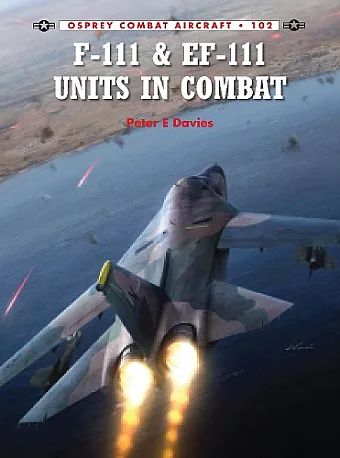F-111 & EF-111 Units in Combat
Peter E Davies author Rolando Ugolini illustrator
Format:Paperback
Publisher:Bloomsbury Publishing PLC
Published:20th Feb '14
Currently unavailable, and unfortunately no date known when it will be back

F-111s based in England flew the longest fighter combat mission in history against the Libyan capital Tripoli in 1986, and in 1991 the aircraft was one of the most important Coalition warplanes in the successful Desert Storm campaign.
The General Dynamics F-111 was one of the most technically innovative designs among military aircraft, introducing the variable-sweep wing, terrain-following radar, military-rated afterburning turbofan engines and a self-contained escape module among other features. Designed as a cost-saving, multi-role interceptor, naval fighter and strike bomber, its evolution prioritised the latter role and it became the USAF’s most effective long-range strike aircraft during three decades of service.
Rushed into combat in Vietnam before some of its structural issues were fully understood, the type suffered several early losses and gained an unfairly negative reputation that dogged it for the rest of its career, and restricted funding for more advanced versions of the design, Peter E Davis argues. However, in Operation Linebacker in 1972 the F-111 flew 4000 nocturnal under-the-radar missions, delivering, with unprecedented accuracy, many decisive blows that would have resulted in heavy losses for any other attack aircraft.
Featuring illustrations throughout, this volume is ideal for fans of later twentieth-century combat aviation.
ISBN: 9781782003472
Dimensions: 244mm x 180mm x 5mm
Weight: 340g
96 pages